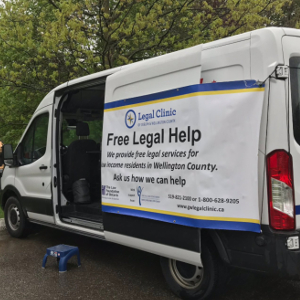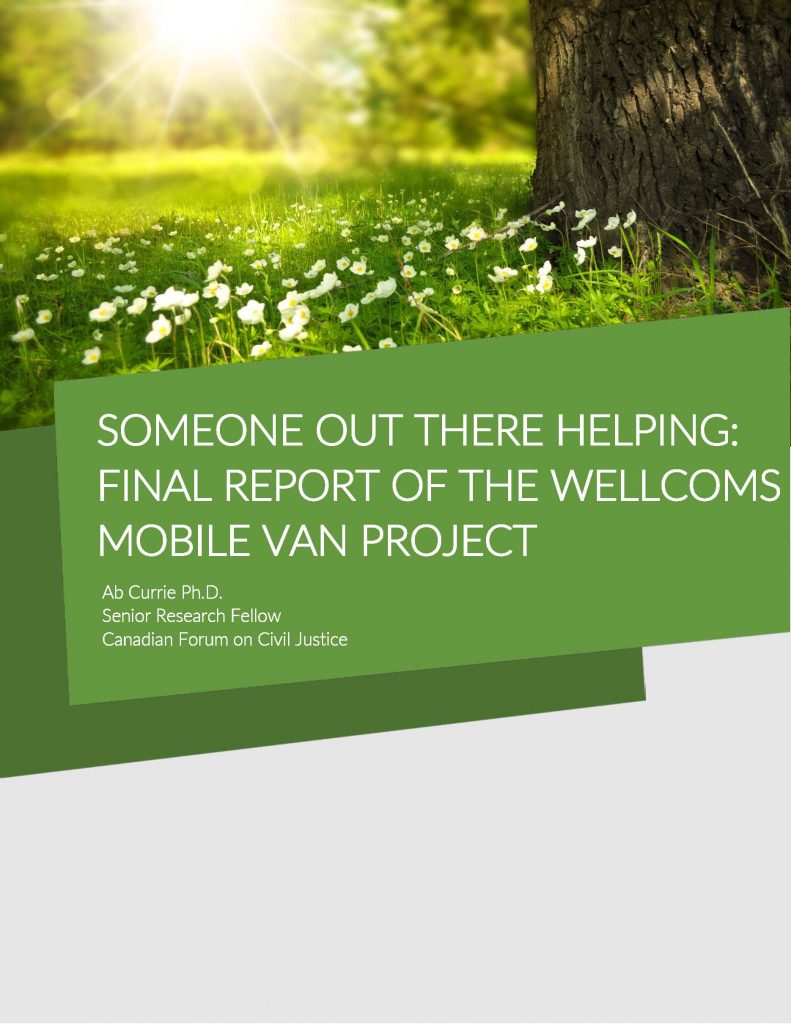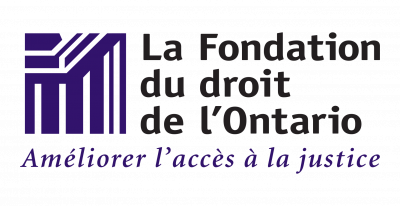It can be a challenge to find legal help when the closest legal clinic is 45 minutes away and there’s no public transportation to get there. That’s a reality for many of the 91,000 county residents that the Legal Clinic of Guelph and Wellington County wishes to serve. With a Connecting Rural Regions grant from The Law Foundation of Ontario, the clinic came up with a plan – and a van – to bring legal services directly to the communities.
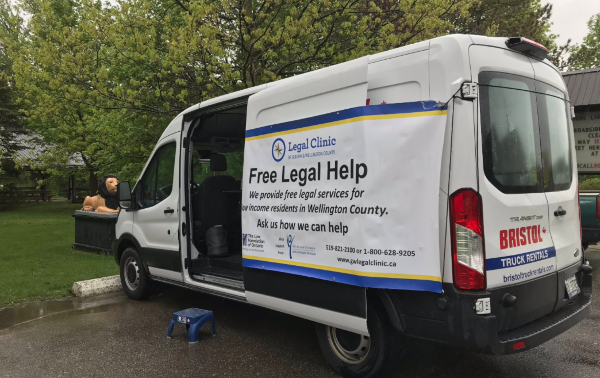
The WellCoMS project
Throughout the Wellington County Mobile Legal Service (WellCoMS) pilot project, community members could access free summary advice sessions in a van that was staffed by outreach workers, and sometimes a lawyer, paralegal, or community legal worker. Part outreach, part legal service, the van travelled to 12 rural communities across Wellington County, visiting each community 10 or more times between May and November 2019. To be as visible as possible, the van parked near high foot-traffic locations, like grocery stores and libraries.
Watch a short video about the project on the clinic’s website
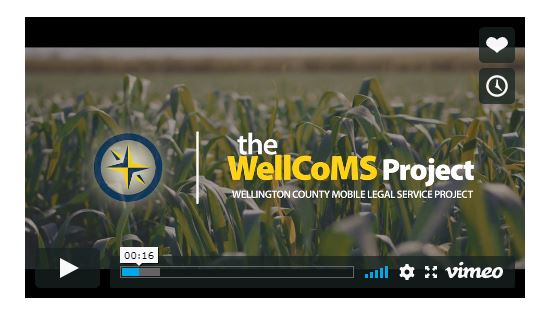
How it helped
Staff used a Legal Health Check Up approach, a process used to uncover legal problems that are connected to every day needs concerning income, housing, education, employment, and family, and social and health supports. They shared legal information and resources on a range of topics, such as CLEO pamphlets and law-specific resource sheets on Employment Law and Wills and Estates. Staff also provided referrals to services such as Pro Bono Ontario, Law Society Referral Service, and Steps to Justice, as well as to local and provincial health, government, and social service organizations. When the issue required more in-depth support, the community member could often be connected on-the-spot via Skype with a case worker or lawyer back at the clinic in Guelph.
In 6 months, the outreach workers met with 586 visitors and close to 80% were provided with some assistance. Family law, landlord-tenant, and civil law matters were the top legal issues asked about. Preliminary numbers showed that about 90% of the people requesting service at the van had never requested service from the clinic before.
“What I discovered while working on the van was that the need in rural Wellington County is huge,” said outreach worker, Rose Vandermeer. “Going to Guelph for service in some of these communities is like going to Mars… Being able to bring such an important service to people where they were, on their way to work or picking up their mail or walking their dog, we could see every day that we were helping to ease their anxieties and stress.”
Learnings from the pilot project
The Legal Clinic of Guelph and Wellington County, supported by the findings of Someone Out There Helping: Final Report of The Wellcoms Mobile Van Project, has deemed the pilot project a success and it plans to use it as a template for future mobile rural outreach projects and service delivery. Here are just 5 learnings from the project:
- Consulting with partners already knowledgeable about and active within the county gave valuable insight into the needs of the people and the logistics to serve them
- Pairing up outreach workers and legal workers created an effective complement of different skills to promote and deliver the service
- Connecting in-person, via social media, and through a dedicated email list with local social service, community, and faith groups, as well as libraries, politicians, and many more, sparked them to champion and promote the project
- Social media is a very effective tool to communicate the van’s location and schedule, create excitement, gain media coverage, and spread the word
- Given the demand for legal advice that outreach workers could not provide, explore technological or other on-the-spot connections to lawyers, especially to family law lawyers
You can read the project’s final report on this webpage.
Foundation granting facilitates legal and community collaborations
The WellCoMS van was one of four Connecting Rural Regions grants made. The granting was one of the ways the Foundation acted on the findings of an evaluation we commissioned of our long-standing Connecting Region program, which aims to facilitate partnerships and coordination among legal and community-based service organizations at a regional level in order to ensure that clients in rural and remote communities receive continuous help as they address their legal issues. You can download a PDF of the Connecting Region evaluation on this webpage.

